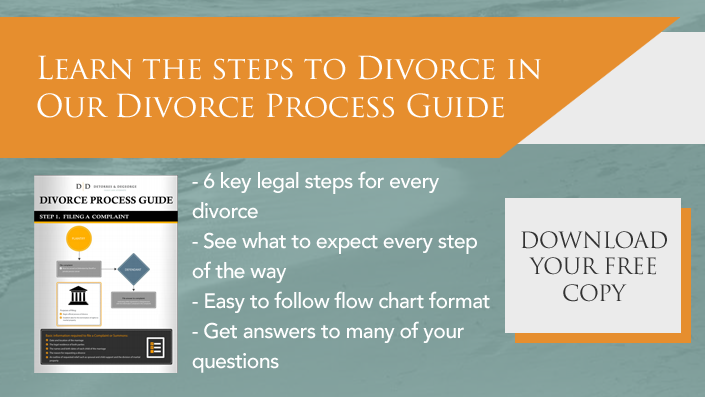
Alimony
There are four types of alimony: open duration; limited duration; rehabilitative; and reimbursement alimony. When a divorce court judge addresses alimony in a trial, he or she is required to refer to a set of 14 factors to decide what type of alimony is appropriate, the length of alimony that is appropriate, and the amount of alimony that is necessary in order to maintain the lifestyle of the person who is to receive it.
The overarching consideration when addressing alimony is one party’s need for alimony and the other party’s ability to meet that need. This is where each party’s Case Information Statement is considered, as it is a financial document that allows the court to assess each party’s financial needs to maintain their standard of living as established during the marriage. However, this is not the only consideration that a judge will make. The divorce court judge will also take into account the age and health of the parties, the length of the parties’ marriage, the earning capabilities of the parties, and the length of any absence from the job force during the marriage. These are important factors to consider because they may sway a judge to award more alimony in a limited duration scenario where, for example, one party stayed home for several years to raise the children and was unable to advance his or her career. The judge may also award a lower amount of alimony, or for a lesser duration, in a case where both parties hold advanced degrees, and it will not take significant effort for a party to become re-employed in that field at a significant income to be self-supporting. The judge’s ultimate decision will be based on the totality of these circumstances, and their reasoning for the decision will be set forth in their trial decision.
Child Support
Child support is calculated utilizing the child support guidelines. These guidelines consist of a computer program that contains certain assumptions, such as that the parent of primary residence will be the parent who is paying the larger portion of the controlled costs for a child. Due to these presumptions of the computer program, your attorney or the judge needs to be sure that they input the information exactly to ensure that the result is fair. The information that is entered into the child support program includes each party’s respective incomes, any alimony that is paid between the parties, the number of overnights that each party has with the children, the children’s share of the cost of health insurance, and any information about prior support orders if there are other children involved. Once this information is included, the guidelines will advise what the appropriate amount of child support is in that matter.
Some parties may agree to deviate from the calculated amount, especially in cases in which the parties are considered “above-guidelines” because of their income levels. The guidelines will also advise on the appropriate reduction that should be made to the basic child support amount in situations where the parties have 50/50 custody of the children. In cases where there is a true 50/50 custody situation, there is case law that allows for the correction of the presumption in favor of controlled costs of the parent of primary residence, resulting in a lower child support obligation.
Equitable Distribution
Property that is acquired during a marriage (except for inherited property) is subject to equitable distribution. Therefore, even if the parties always maintained separate bank accounts, there may be an argument that the accounts should be equalized because the funds are marital. This is also true of retirement accounts. Many people have the misconception that because their retirement is funded directly from their income and is in their sole name, it is their separate property. However, any amount of retirement income that accrues from the date of marriage to the date of the filing of the complaint is marital money and is, therefore, to be shared by the parties.
Enforcement of Settlement Agreements
When parties can settle their divorce amicably and enter into a Marital Settlement Agreement, that agreement is made part of their divorce judgment. The agreement survives the judgment of divorce and does not merge with it, meaning that both the judgment of divorce and the agreement are to be read together to determine what the terms of the agreement are. Judges do not review the agreement and pass judgment about whether or not they think the agreement is fair. If the parties believe the agreement is fair, that is enough for the judge, and he or she will put through the divorce. In the event that a dispute arises about the terms of the agreement, the party who is unhappy will return to court to enforce the agreement. What some people do not realize, however, is that the court will not re-write your agreement because you are now unhappy with it. Instead, the court will enforce the agreement as written, generally offering clarity and guidance if necessary, but not re-working the agreement as a whole. Therefore, it is important when you are negotiating your agreement that you understand precisely what the terms of the agreement are and that you and your spouse both understand them to mean the same thing. Additionally, it is best if your agreement can address as many potential future issues as possible to try to limit the potential for post-judgment disputes.
If you have family law questions, contact the attorneys of DeTorres & DeGeorge to schedule a consultation.












